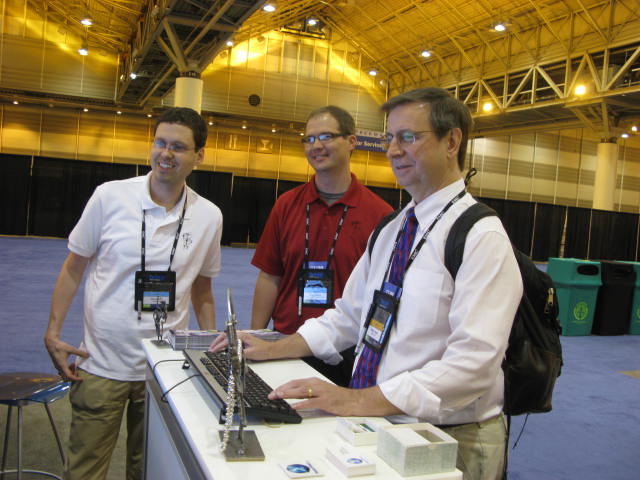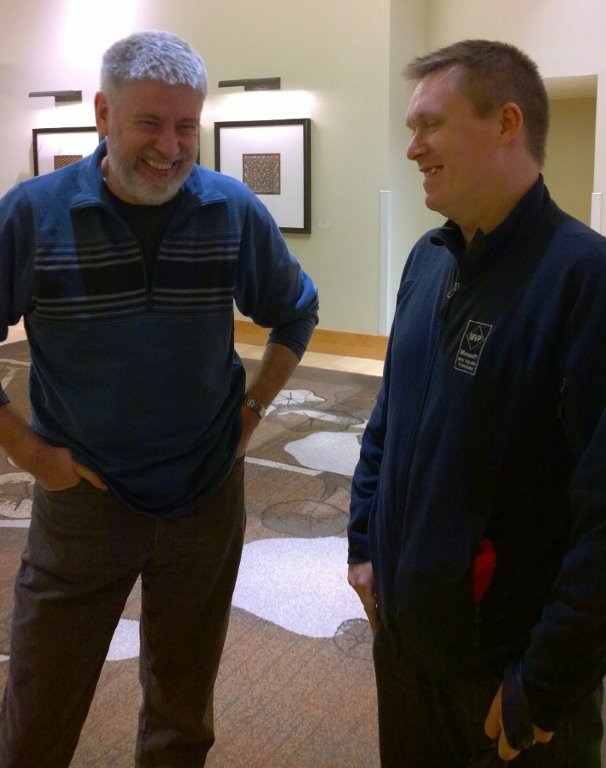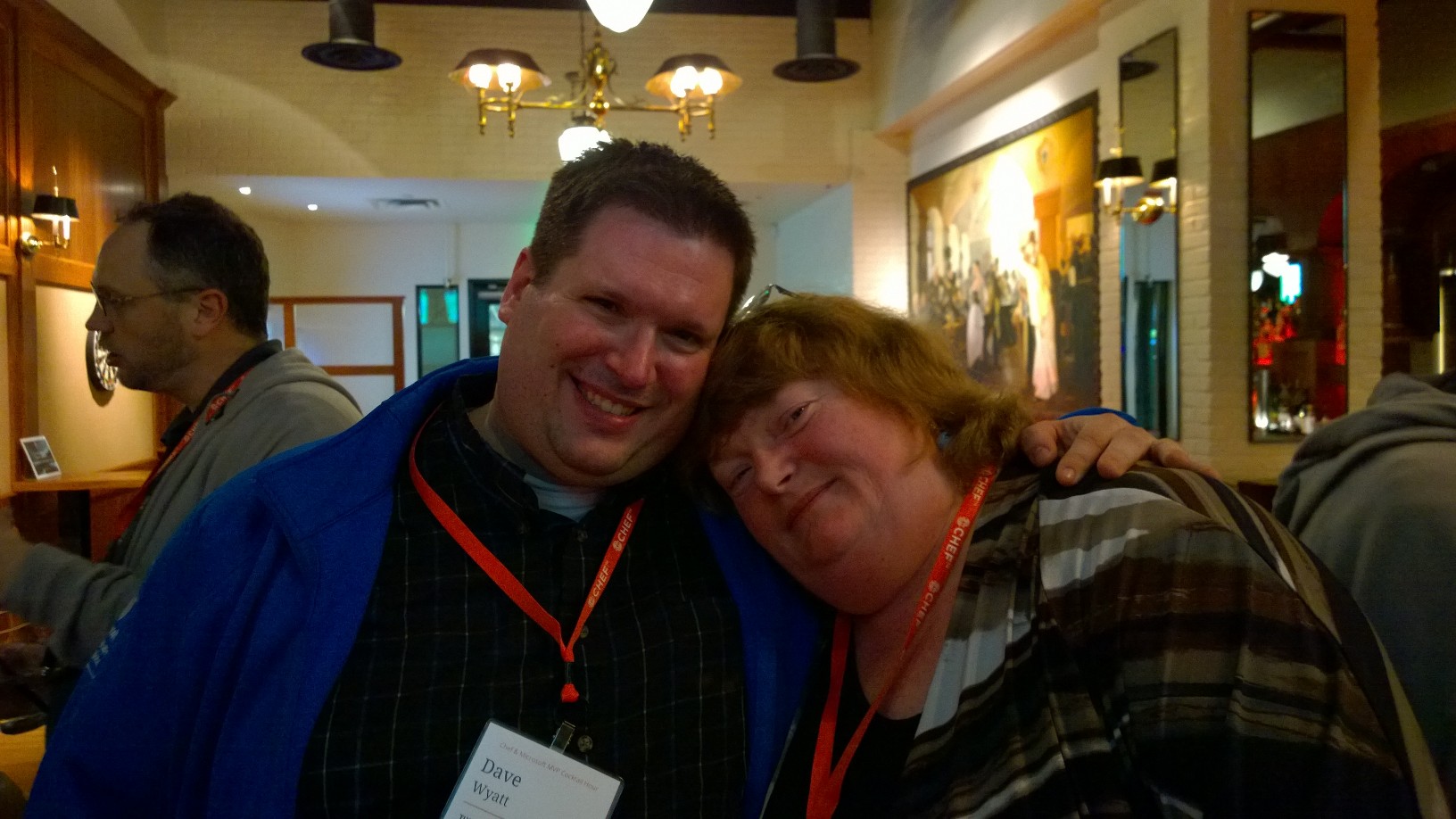Summary: Microsoft PowerShell MVP, Teresa Wilson, talks about the Windows PowerShell Summit 2015 speakers.
Microsoft Scripting Guy, Ed Wilson, is here. This week we will be talking about the PowerShell Summit. So who better to write some guest blog posts but the treasurer for PowerShell.org—my very special Scripting Wife and Windows PowerShell MVP, Teresa Wilson. Take it away Teresa…
Hello everyone!
Thanks for stopping by and reading the blog today. I am all excited. It is April, which means I just returned from the US Open Days inaugural event in Malvern, PA for US MVPs, and I was renewed as a PowerShell MVP! Thank you for honoring me as such.
April also means that it is time for the North America PowerShell Summit 2015. In case you do not know about the Summit, it is organized by a team of volunteers and a paid event manager with support from the Windows PowerShell team. The purpose of the event is to spread knowledge about Windows PowerShell. The last two years it was held in Washington State, so this year the Summit is being held on the east coast at the Microsoft campus in Charlotte, NC.
I am happy to help bring you this event, and I want to let you know about the speakers and their sessions. Remember if you were unable to register for the event and travel to Charlotte, you can still hear the presentations because they will be recorded and shared on You Tube.
We have more than 20 speakers and more than 30 sessions. I will break that up into bite-sized pieces for you this week.
In no particular order, here is the first group of speakers and the synopsis about their sessions straight from the PowerShell.org page.
You know I have to start off with the man who has made all this possible: Jeffrey Snover, the inventor of Windows PowerShell. Jeffrey is a distinguished engineer and the lead architect for the Windows Server Division at Microsoft. Jeffrey is slated for two sessions at the Summit:
- State of PowerShell: Where We Are, Where We're Going
- Q&A with Jeffrey Snover
Both sessions will be a treat no matter what is said. You can see Jeffrey demonstrating to Chris Duck and Brian Wilhite in Houston at TechEd 2013 in the previous photo.
To read more, see About Jeffrey.
If I counted correctly, it looks like we will have nine Windows PowerShell MVPs on hand to make presentations. Let’s talk about a couple today…
Richard Siddaway will be joining us from England. He is an Honorary Scripting Guy, a Windows PowerShell MVP, and he is on the board of directors for PowerShell.org. He will be presenting the following sessions:
- Using PowerShell to Manage a Heterogeneous Environment. Our environments are becoming increasingly heterogeneous. In this session, you will discover how to use the Windows PowerShell tools you know and love to manage to configure some of the non-Windows machines in your environment.
- What on Earth is OData? The last few versions of Windows PowerShell have enabled you to work directly with OData. This session will explain what OData is, how you can use it, how you can express Windows PowerShell through OData, and how it can become another option in your remote access toolkit.
Following is a photo of Richard on the left and Windows PowerShell MVP, Boe Prox, on the right.
For more from Richard, see:
Another Windows PowerShell MVP and a board member on PowerShell.org is Dave Wyatt. Dave will be speaking on two topics:
- Automated Testing of PowerShell Code. This session covers how to use the Pester module to automate tests of your Windows PowerShell scripts and modules. With a complete suite of automated tests for your code, you can change it any way you like, with confidence that you haven't introduced bugs. Whether you're refactoring some messy legacy code or completely gutting and reimplementing something, you can make sure that you've done it right with the push of a button. Topics covered include:
- Benefits of automated testing
- Introduction to test-driven development and behavior-driven development
- Basics of writing Pester test scripts
- Mocking commands
- Analyzing test coverage
- Pester as part of a continuous integration and continuous deployment solution
- Keeping Secrets: How to Protect and Share Sensitive Data in PowerShell. Have you ever seen a plain-text password or encryption key in a script or configuration file, and cringed? Do you know what to do about it? This session covers several secure methods for dealing with secret data in a Windows PowerShell script, including:
- Using custom remoting endpoints to move saved credentials completely out of the client-side script
- Using ConvertFrom-SecureString, ConvertTo-SecureString, Import-Clixml, and Export-Clixml to encrypt and save information locally by using the Windows Data Protection API
- Using the Windows Credential Vault
- Ways to share encrypted data with other users (ConvertFrom-SecureString, ConvertTo-SecureString, and .NET cryptography classes
- Managing, securing, and sharing encryption keys
- Leveraging public key cryptography
- Demonstration of a Windows PowerShell module that simplifies the .NET cryptography tasks by using RSA certificates
The only photo I had of Dave also includes me. Sorry I am included—this is about Dave, not me.
For more from Dave, see:
We have a few Microsoft employees speaking too. One is Ashley McGlone. He is a premier field engineer and an Honorary Scripting Guy. Ashley has two sessions lined up:
- Managing PowerShell in the Enterprise Using Group Policy. If you're like me, you enjoy geeking out on all the bells and whistles of Windows PowerShell. Leveraging that schweetness across thousands of machines is a key goal. Managing PowerShell in the enterprise is a conversation that does not get enough visibility. So much of the Windows PowerShell content in the community is geared towards features rather than operations.
The goal of this session is to get into the nitty gritty of making Windows PowerShell effective in your enterprise-scale environment with Group Policy. What settings are available? What are my options for managing the client and server settings of Windows PowerShell? Come find out about mass configuration of execution policy, module logging, Update-Help, WSMan, and more. These topics sound simple on the surface, but they quickly spiral into some interesting conversations.
- What Can PowerShell DSC do for Active Directory? Find out how DSC can help with domain controller deployment and configuration. Learn the ideal tweaks you should include in your own Active Directory DSC custom resources. Maybe we'll configure DNS with DSC if we have time.
Here is a photo of Ashley:
For more from Ashley, see:
- Goatee PFE: Blog of Ashley McGlone featuring PowerShell scripts for Active Directory
- Hey, Scripting Guy! Blog posts by Ashley McGlone
Join me tomorrow when I introduce four more speakers and their sessions. Have a scriptastic day!
~Teresa
I invite you to follow me on Twitter and Facebook. If you have any questions, send email to me at scripter@microsoft.com, or post your questions on the Official Scripting Guys Forum. See you tomorrow. Until then, peace.
Ed Wilson, Microsoft Scripting Guy





0 comments